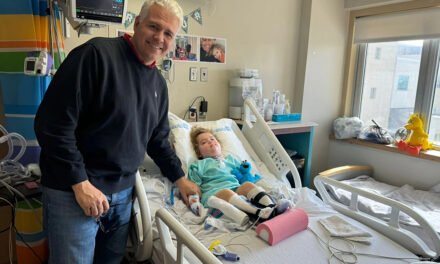Slide 1 What Should You Do If You Just Received An Ovarian Cancer Diagnostic?Here are steps to take if you’ve been newly diagnosedSlide 2 Know that you are not alone More than 20,000 women will be diagnosed with ovarian cancer this year.Over the years, better treatments have lowered death rates — which have dropped by 43% since 1976.Slide 3 Find the right medical partner Ask your gynecologist or primary care doctor for a referral or use Ovarian Cancer Research Alliance’s (OCRA) doctor finder. Research shows that having your surgery performed by a gynecologic oncologist can improve your outcome. Get a second opinion. Don’t be shy: Doctors expect patients to do this with any serious diagnosis. Slide 4 Learn about ovarian cancer There are several different types and stages of ovarian cancer. Learn about the type and stage you have, so you can research and understand your disease.Be sure to use reliable websites like the CDC, NIH and medical journals — and ask your healthcare provider about what you learn.Slide 5 Be proactive Learning about treatment options will help you work in partnership with your medical team. Your doctors are cancer experts, but only you have expertise on your preferences, needs and body.Shared decision-making with your team empowers you to be an active participant in your care.Slide 6 Get genetic and biomarker testing Your results can reveal information about your cancer that can help your medical team identify the most effective treatments for you.Your results may also help you get into clinical trials, if appropriate.Slide 7 Learn about common treatments Treatment usually involves surgery and chemotherapy. Your doctor may recommend surgery to remove one or both ovaries, or remove the fallopian tubes and uterus. Ask your doctor about pregnancy preserving options if you need this. Chemotherapy can be injected, oral or infused into the abdomen during surgery.Slide 8 Learn about newer treatments Targeted drug treatments attack identified weaknesses in cancer cells. Hormone therapy drugs block the effects of estrogen on cancer cells, and immunotherapy uses your own immune system to fight cancer. Ask your doctor if any of these options should be used in your treatment plan.Slide 9 Ask about clinical trials Clinical trials develop and test new treatments for cancer. To get the most advanced therapies, you can search online for clinical trials using online tools such as OCRA’s Clinical Trial Navigator , or speak with your doctor for guidance.Slide 10 Get support Don’t forget about your mental health. A cancer diagnosis can be devastating. Finding support by attending support groups, talking to a therapist and leaning on friends and family can help.Saying yes to help is an important part of self-care.Resources National Ovarian Cancer Coalition ResourcesOvarian Cancer Research Alliance’s (OCRA) Doctor Finder Ovarian Cancer Research Alliance’s (OCRA) Support ServicesSHARE Cancer’s support groupsThis educational resource was created with support from Daiichi Sankyo and Merck.
Cause link
What Should You Do If You Just Received An Ovarian Cancer Diagnostic?





